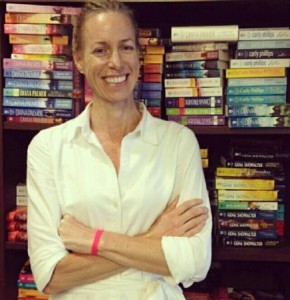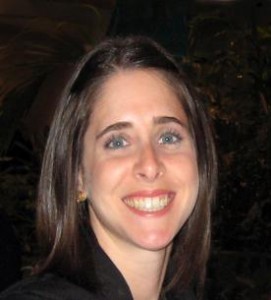Harlequin’s New Literary Imprint: Margaret Marbury and Erika Imranyi Interviewed
The past few years have seen bookstores, publishers, and newspapers scale back, in part because of the e-book revolution, and a changing consumer landscape. Harlequin is one of the few companies that managed to adapt and turn the tide in their favor and now comes the very exciting news that they’re launching a new imprint (Park Row) dedicated to publishing literary fiction. We caught up with Margaret Marbury (Vice President of Harlequin Single Titles) and Erika Imranyi (Executive Editor) who were kind enough to speak to us about the new literary imprint and what we can expect to see in bookstores in 2017.
TSM: Usually you hear some buzz about a new imprint but this one came as a complete surprise; tell us how long the discussion has gone on about a new imprint?
EI: I’m surprised it was a surprise! Harlequin has been publishing literary fiction under the MIRA imprint for several years now. Recently we’ve seen great success with New York Times bestselling novels such as The Returned by Jason Mott and The Good Girl by Mary Kubica; as the literary program has flourished and grown, so too has the need to bring a greater spotlight to the exceptional books we’re publishing. Hence, the idea of Park Row was born.

Margaret Marbury “Voice is key. It’s the main ingredient in setting your book apart.”
TSM: Who are some of the authors who will be a part of this?
EI: We are moving some of the MIRA authors into the imprint: Mary Kubica, Jason Mott, Heather Gudenkauf, and Pam Jenoff, among others, and we are acquiring new authors as well. Benjamin Ludwig’s debut, The Original Ginny Moon, told from the perspective a teenage girl with autism, will be the launch title for the list in May 2017; award-winning Canadian author Christopher Meades will make his U.S. debut with Hanna Who Fell from the Sky. Park Row will be a destination for both established and new authors who want a boutique publishing approach with the muscle of a powerhouse commercial publisher.
TSM: Whenever you talk to some people, they have this misinformed attitude that anything affiliated with Harlequin has romance, With the imprint, how will you try to set the record straight that this will be as romantic as a book that Dutton or Atria will publish?
EI: Our books speak for themselves. Harlequin has been successfully publishing nonromance books for many years. There’s MIRA, the Teen program, and up until recently, we had nonfiction. Our literary novels have been bestsellers, Indie Next picks, received starred reviews, and major national media. The misinformed attitudes are becoming fewer and fewer; most people seem to get it and are excited about what we’re doing.
TSM: Who came up with the name Park Row Books?
EI: Our VP, Margaret Marbury! It’s a great homage both to the literary history of our office’s neighborhood in downtown Manhattan, and to Harlequin’s own history in the Woolworth Building, which we called home for many years.
TSM: What do you think is the biggest trend you’re seeing in the world of mystery publishing—besides focus on dystopian books?
EI: Female-driven psychological suspense continues to thrive, though the market is becoming saturated. Also, mainstream novels with elements of genre; oddly, I’ve seen a number of novels on submission recently that are set in space.
MM: The unreliable narrator, notably female, and dark domestic dramas.
TSM: How has the merger of with HarperCollins worked out?
EI: HarperCollins and Harlequin each have exceptional strengths that complement one another beautifully. We couldn’t have been better matched.
TSM: Who are some authors that we should know about who have not gotten a lot of attention but in the future you think will break out?
MM: Pam Jenoff. She primarily writes novels set during WWII, including The Orphan’s Tale, out in late February from Park Row. It’s terrific, and we think it will be her breakout. J.T. Ellison is another writer who just keeps getting better. She writes dark, psychological thrillers set in Nashville—Field of Graves is her latest— and cowrites the Nicholas Drummond series with Catherine Coulter. She’s definitely one to watch.
TSM: What are some of the things you think beginning authors should work on before they get published?
MM: Voice is key. It’s the main ingredient in setting your book apart. I also recommend developing a strong work ethic, thick skin, and the ability to network.

Erika Imranyi “I’m not worried about bookstores going away. But the digital revolution has forced publishers to think about things a little differently.”
EI: Voice and plot. I read a lot of submissions that have excellent writing, but after thirty pages, the story starts to sag and meander and doesn’t pick up until the end. Similarly, many authors have terrific premises, but they haven’t figured out what makes their voice special. I’m always looking for a fresh and confident voice and a story that keeps me turning the pages.
TSM: I’d love to hear about both your backgrounds—all the authors from MIRA have wonderful things to say about both of you. Where were you both before MIRA?
MM: I’ve been at Harlequin for years. Some people may remember me from when I launched Red Dress Ink in 2001. Before working in publishing, I was a newspaper reporter.
EI: I started in publishing as an editorial assistant at Dutton in 2003 after completing a master’s degree in English and realizing I wanted to work with living authors instead of dead ones. I eventually became the imprint’s women’s fiction editor and left in 2011. I came to MIRA to help build the literary fiction program, and the rest is history.
TSM: We live in a changing age—an age where all too often authors need a built-in audience to help bring more attention to their books. What would you say is the biggest piece of marketing advice you’d give a beginning author?
EI: Embrace social media (without being awkward and pushy). Become a part of your writing and bookselling communities.
MM: Accept that there is no magic bullet. Learn how to talk effectively about your book to others; the right positioning and a consistent, relevant pitch can do wonders.
TSM: The whole digital publishing revolution has had a lot of publishers fearing that bookstores were all on their way out. What have you learned from the shift toward digital?
 EI: Print is still alive and thriving; I’m not worried about bookstores going away. But the digital revolution has forced publishers to think about things a little differently: things like pricing, format strategy, marketing, metadata. The Internet makes discoverability a bit more challenging, but it also allows for great innovation.
EI: Print is still alive and thriving; I’m not worried about bookstores going away. But the digital revolution has forced publishers to think about things a little differently: things like pricing, format strategy, marketing, metadata. The Internet makes discoverability a bit more challenging, but it also allows for great innovation.
TSM: When will the first Park Row book hit bookstores?
EI: The Original Ginny Moon by Benjamin Ludwig releases on May 2, 2017. Mark your calendars!
TSM: How many titles a year do you hope to publish?
EI: We hope to build to 25-30 titles a year.
TSM: Can we expect more imprints in the future?
MM: Yes. The Harlequin Trade Division is expanding. We want to have the best structure and opportunities to publish the best books. Have I piqued your interest?
TSM: What books do you have on your nightstand at the moment?
MM: A Brief History of Seven Killings by Marlon James and Astray by Emma Donoghue.
EI: Britt-Marie Was Here and The Nest.
